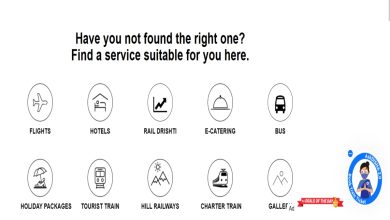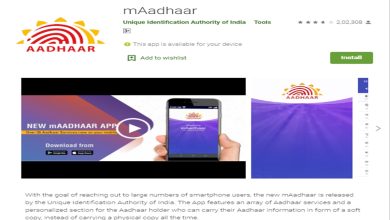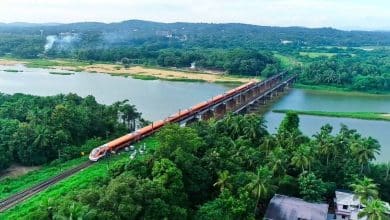Ration Card Application In India – Top 20 Questions Answered
A ration card is an official document, issued by the government of a State or Union Territory, to any citizen of India, for subsidized purchase of essential commodities, from ration shops in their locality. Ever wondered how to make a ration card application or how to check your ration card application status in India?
Read on to know the answers to some commonly asked questions on online ration card application, ration card application status, ration card portability etc.
You Might Want To Read
Ration Card Application – State-Wise
| Ration Card In Karnataka | WB Ration Card |
| Assam Ration Card | Bihar Ration Card |
| Delhi Ration Card | UP Ration Card |
| TS Ration Card |
Ration Card Application In India – Top FAQs
Who is eligible to make a ration card application?
Any citizen of India is eligible to apply for a ration card. However, the eligibility for benefits under different types of ration cards will differ based on the criteria prescribed by each State or Union Territory.
How can I make a new ration card application online?
Since respective State Government or Union Territories issue ration cards, you need to submit the new ration card application in the respective State/ UT that you live in. Each State / UT has its own ration card application process.
You can submit a new ration card application either as:
1) offline ration card application at the designated office in your State/ UT; or
2) an online ration card application. Do note that some States/ UTs may not have enabled an online ration card application facility, in which case you will need to make an offline ration card application at the designated office in your State/ UT.
Can I download ration card application form online?
Format of the ration card application form varies depending on each State/ UT where you apply. If your State/UT has an online ration card application form, you can download it from the online Public Distribution Portal of the relevant State/ UT. You can check if the ration card application form is available online in your State/ UT here.
What documents are needed for ration card application?
The documents required for ration card application may vary from State to State. However, the following category of documents are commonly required by most of the States/UTs:
1. Duly filled in and signed ration card application form in the prescribed format.
2. Identify proof of the applicant.
3. Proof of current residence address.
How can I check my ration card application status?
Ration Card application has to be submitted with the relevant respective State/ Union territory of your residence. Where the State/ UT has facilitated an option for checking the ration card application status online, you can visit the public distribution portal of your State/ UT and check the ration card application status. You can access the website of your State/UT from the table below to know if the ration card application status check is enabled.
Source: NFSA
What are the different types of ration cards in India?
National Food Security Act, 2013 (NFSA) governs the issue of rations cards in India. Under the NFSA there are broadly three categories of ration cards:
1) Priority House Hold or “PHH”
2) Antyodaya Anna Yojana or “AAY
3) Non-Priority Households or “NPHH”
Who is eligible for Priority House Hold or PHH card?
Each State Government/ UT will determine the households that fall under the category of Priority House Holds. Each priority household is be entitled to 5 kg of food grains per person per month. The eligible household is entitled to subsidised price of Rs. 3/ kg for rice, Rice 2/kg for wheat and Rs.1/ kg for coarse grains. Some States/UT offer additional benefits for Priority Households.
What is Antyodaya Anna Yojana or “AAY” ration card?
The AAY ration card is aimed at supporting the poorest of the poor. The eligibility for the AAY card is prescribed by the Central Government under the Antyodaya Anna Yojana Scheme. Under the AAY card, each household is entitled to 35kg of food grains per month per household at highly subsidised prices. Under the AAY scheme the eligible household can purchase food grains from ration shop at the subsidised price of Rs. 3/ kg for rice, Rice 2/kg for wheat and Rs.1/ kg for coarse grains.
Who is eligible for Antyodaya Anna Yojana or “AAY” ration card?
The following categories of households are eligible for the AAY card:
1) Landless agriculture labourers, craftsmen and rural artisans like potters, tanners, weavers, blacksmiths, carpenters, marginal farmers
2) slum dwellers or persons earning daily livelihood in informal sector such as coolies, hand cart pullers, porters, fruit and flower sellers, rickshaw pullers, rag pickers, snake charmers, cobblers, etc.
3) destitute persons or similar categories living in both urban and rural.
4) Household headed by:
i) a widow; or
ii) a terminally ill person; or
iii) a disabled person; or
iv) senior citizen aged 60 years or above with no secure means of sustenance or societal support.
5) Persons who have no societal support or family or assured means of survival and falling under any of the following:
i) Widow
ii) terminally ill person
iii) disabled person
iv) person of age 60 years or above
v) single women or single men
6) All primitive tribal households.
What is a Non-Priority Households or “NPHH” ration card?
The households leftover in a State/ UT after determining the list of households eligible for PHH and AAY ration cards, will be considered as Non Priority House Holds. NPHH cardholders are not eligible for any subsidies under NFSA.
What is BPL and APL card?
Before implementation of the National Food Security Act, 2013 (NFSA), States/ UTs issued ration cards under following two broad categories i.e., primarily based on the annual income of a household:
1) BPL – Below Poverty Line; and
2) APL – Above Poverty Line
However, it is to be noted, with the implementation of the NFSA, there is no longer any BPL or APL cards in effect. Any existing BPL or APL card will be converted to a PHH or NPHH card based on the eligibility criteria determined by the issuing State/ UT.
Can ration card be used as identity or address proof?
The Rules governing issuance of rations cards specifically stated that ration cards are not supposed to be used as any identity or address proof. However, from a practical perspective you can often find several instances where ration cards can come in handy to validate your identity or residence.
Can I contact the Public Distribution Department in my State for any queries on ration card application status?
Yes. You can use the toll free numbers indicated in the table below to contact for raising queries or grievances relating to your ration card in your State/ UT.
| State/UT | Toll Free Number(s) | |
|---|---|---|
| Andhra Pradesh | 1967 | 1800-425-2977 |
| Andaman & Nicobar Islands | 1967 | 1800-343-3197 |
| Arunachal Pradesh | 1967 | |
| Assam | 1967 | 1800-345-3611 |
| Bihar | 1800-3456-194 | |
| Chandigarh | 1967 | 1800-180-2068 |
| Chhattisgarh | 1967 | 1800-233-3663 |
| Dadra & Nagar Haveli | 1967 | 1800-233-4004 |
| Daman and Diu | 1967 | |
| Delhi | 1967 | 1800-110-841 |
| Goa | 1967 | 1800-233-0022 |
| Gujarat | 1967 | 1800-233-5500 |
| Haryana | 1967 | 1800-180-2087 |
| Himachal Pradesh | 1967 | 1800-180-8026 |
| Jammu & Kashmir | 1967 | 1800-800-7011 (Kashmir Province) 1800-180-7106 (Jammu Province) |
| Jharkhand | 1800-345-6598; 1800-212-5512 | |
| Karnataka | 1967 | 1800-425-9339 |
| Kerala | 1967 | 1800-425-1550 |
| Lakshadweep | 1800-425-3186 | |
| Madhya Pradesh | 1967 | |
| Maharashtra | 1967 | 1800-22-4950 |
| Manipur | 1967 | 1800-345-3821 |
| Meghalaya | 1967 | 1800-345-3670 |
| Mizoram | 1967 | 1860-222-222-789; 1800-345-3891 |
| Nagaland | 1800-345-3704; 1800-345-3705 | |
| Orissa | 1967 | 1800-345-6724; 1800-3456760 |
| Puducherry | 1800-425-1082 (Puducherry) 1800-425-1083 (Karaikal) 1800-425-1084 (Mahe) 1800-425-1085 (Yanam) |
|
| Punjab | 1967 | 1800-3006-1313 |
| Rajasthan | 1800-180-6127 | |
| Sikkim | 1967 | 1800-345-3236 |
| Tamil Nadu | 1967 | 1800-425-5901 |
| Telangana | 1967 | 1800-4250-0333 |
| Tripura | 1967 | 1800-345-3665 |
| Uttar Pradesh | 1967 | 1800-180-0150 |
| Uttarakhand | 1800-180-2000; 1800-180-4188 | |
| West Bengal | 1967 | 1800-345-5505 |
Source: NFSA
Can I register an online complaint or grievance regarding my ration card application?
Yes. Most states have a grievance redressal portal as part of their PDS portal. You can access the grievance redressal portal of the States that have enabled this facility using the relevant URL listed below:
What is the meaning of One Nation One Ration Card?
The One Nation One Ration Card is a scheme launched by the Department of Food and Public Distribution aimed at implementing nationwide portability of ration cards. The Scheme is primarily intended to benefit the migrant population. The One Nation One Ration Card Scheme enables both inter-state and intra-state portability of ration card. Under the One Nation one Ration Card scheme, each eligible person can purchase their individual quota of food grains, through any ration shops in the country, irrespective of the place where the ration card is issued.
How does the One Nation One Ration Card Scheme work?
The One Nation one Ration Card scheme allows intra-state and inter-state portability of ration cards. This is achieved through:
i) Establishing an Integrated Management of PDS (IM-PDS) portal to provide the technological platform for the inter-state portability of ration cards;
ii) Aadhar seeding of ration cards to ensure that biometric details of each beneficiary under a ration card is captured;
iii) Electronic point of sales (e-POS) installed in all ration shops/ fair price shops to enable screening of the biometric data of beneficiaries;
iv) Standardization of ration card format across India.
What are the features of the standardized ration card?
The standardized ration card format has the following features:
i) a common format for ration card;
ii) all ration cards will be issued in bilingual format where in addition to the regional language of the State/UT, the detailed will also be printed in either English or Hindi;
iii) a standard 10 digit ration card number format will be adopted, where the first two numbers will be the code for the State/ UT as per local government directory and the balance 8 digits will be the unique number allocated to each ration card.
iv) along with the 10 digit number, a two digit Member ID will also be added, where the default number of the head of the household will be 00 and each additional member will have the ID 01, 02 and so on.
Who can get the benefits of the One Nation One Ration card scheme?
Any person eligible for a priority household card (PHH) or Antyodaya Anna Yojana (“AAY”) is eligible to avail the benefits of the One Nation One Ration Card Scheme.
Do I need to apply for a new ration card to be covered under the One Nation One Ration card scheme?
No. You do not need to make a new ration card application to avail the benefits of the One Nation One Ration Card scheme.
Which states are currently covered under the One Nation One Ration card scheme?
As on August 2, 2020, the below mentioned 25 States/Union Territories have implemented the ration card portability:
| State/ UT With Ration Card Portability |
|---|
| Andhra Pradesh |
| Bihar |
| Dadra & Nagar Haveli |
| Daman & Diu |
| Goa |
| Gujarat |
| Haryana |
| Himachal Pradesh |
| Jharkhand, |
| Karnataka |
| Kerala |
| Madhya Pradesh |
| Maharashtra |
| Mizoram |
| Odisha |
| Punjab |
| Rajasthan |
| Sikkim |
| Telangana |
| Tripura |
| Uttar Pradesh |
| Jammu & Kashmir |
| Manipur |
| Nagaland |
| Uttarakhand |
Other Useful Information
- eCourts Services In India
- Kisan Credit Card Scheme
- mParivahan App
- Sarathi Parivahan
- DigiLocker App
- Parivahan Services




